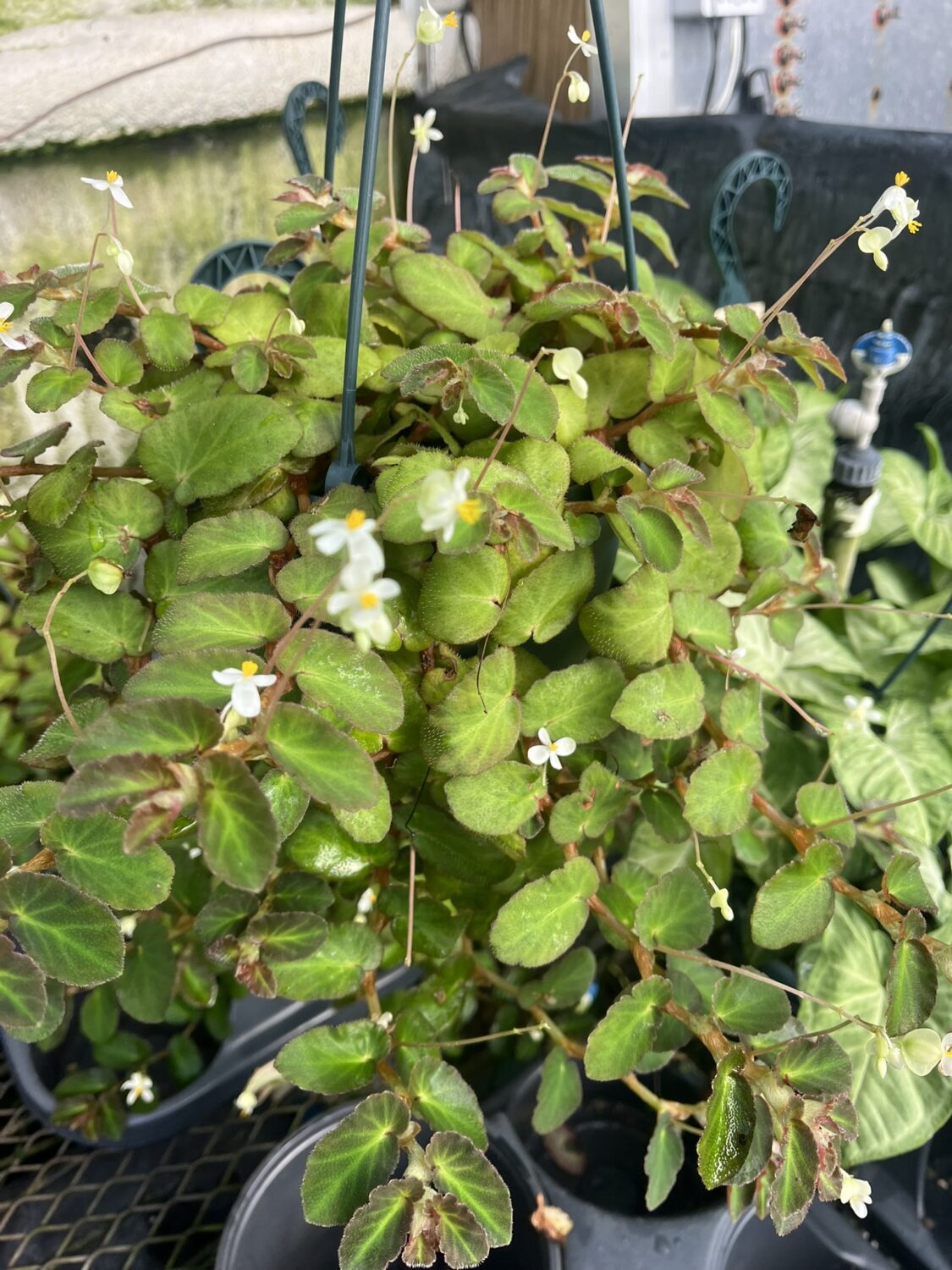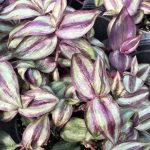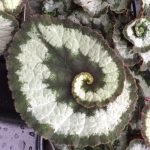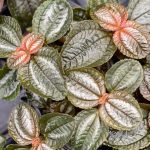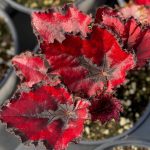Begonia thelmae
Price range: $6.99 through $12.99
Plant, Zone 9+
Discount per quantity
| Quantity | 3 - 8 | 9 - 14 | 15+ |
|---|---|---|---|
| Price | Price range: $6.78 through $12.60 | Price range: $6.57 through $12.21 | Price range: $6.29 through $11.69 |
| % Discount | 3% | 6% | 10% |
Description
Begonia thelmae: A Jewel for Your Indoor Garden
Begonia thelmae is a plant that feels like a little secret. It’s delicate but strong, soft yet striking. With cascading stems covered in tiny rounded leaves and a sprinkle of pink flowers, this tropical beauty can transform any corner of your home into a lush retreat. Best of all, it’s forgiving enough for beginners yet interesting enough for experienced collectors.
Native to South America’s humid forests, Begonia thelmae thrives in warmth and moisture. But with just a few adjustments, it adapts beautifully to life indoors. Let’s dive into what makes this plant special, how to care for it, and creative ways to showcase it in your space.
What Makes Begonia thelmae Special?
Graceful Foliage
The leaves are small, coin-shaped, and a rich green that catches the light. Some have a soft sheen, while the undersides show a hint of red. This subtle color shift makes the plant look lively from every angle.
Trailing Habit
Begonia thelmae grows in flowing vines that spill from pots and baskets. It’s perfect for hanging planters or high shelves where its stems can cascade naturally.
Pops of Color
While its leaves are the main show, Begonia thelmae blooms with dainty pink flowers throughout the year. These blossoms add a gentle surprise when they appear among the greenery.
Compact Size
Most plants reach about 12 to 18 inches long. That makes it ideal for small apartments, desktops, or terrariums where space is at a premium.
Flexible Display Options
Whether you want a lush hanging basket, a terrarium accent, or a tabletop centerpiece, this plant’s versatility fits many styles.
Creating the Right Environment
To help Begonia thelmae thrive, it’s best to mimic its tropical forest origins. This means filtered light, even moisture, and a touch of humidity.
Light: Bright but Gentle
Direct sun is too harsh for its delicate leaves. Instead, aim for bright, indirect light.
-
Best Spots: Near an east- or north-facing window. Morning sun is fine, but shield it from strong afternoon rays.
-
Low Light? No problem. You can use LED grow lights. Place them 12 to 18 inches above the plant for steady growth.
Temperature: Warm and Stable
Begonia thelmae loves consistency. Keep it in a room that stays between 65 and 75°F (18–24°C).
-
Avoid cold drafts from windows in winter.
-
Keep it away from heating vents that dry the air.
Humidity: Tropical Comfort
This plant thrives with humidity levels around 50% or higher.
-
Simple Fix: Place the pot on a tray of pebbles and water.
-
Group Plants: Cluster it with other tropicals to raise local moisture.
-
Humidifier: If the air is very dry, a small humidifier can make a big difference.
The Right Soil Mix
Begonia thelmae needs soil that drains quickly but holds some moisture.
-
DIY Mix: Equal parts peat moss and perlite, with a pinch of orchid bark or sand.
-
Store-Bought: A quality begonia or African violet mix works well.
-
Key Tip: The soil should stay slightly damp but never soggy.
Watering: Find the Sweet Spot
This is where most growers struggle—but it’s easy once you learn to read the plant.
-
Check Moisture: Let the top inch of soil dry before watering again.
-
Use Gentle Water: Rainwater or distilled water prevents mineral spots on leaves.
-
Go Around the Base: Water the soil directly, not the foliage, to avoid mildew.
-
Adjust Seasonally: In winter, growth slows, so water less often.
Feeding for Growth
During spring and summer, Begonia thelmae grows most actively and appreciates extra nutrients.
-
Fertilizer Type: Balanced, water-soluble (like 10-10-10), diluted to half strength.
-
Frequency: Every 4–6 weeks while actively growing.
-
Pause Feeding: Stop in fall and winter when the plant naturally rests.
Pruning and Repotting
Keep It Tidy
Trim back leggy stems to encourage fuller growth. Remove yellow or damaged leaves to keep it fresh.
When to Repot
Every 1–2 years, or when roots peek out of drainage holes. Choose a pot just one size bigger to avoid overwatering issues.
Common Problems (and Fixes)
Even hardy plants have their moments. Here’s what to watch for:
-
Yellow Leaves
Likely too much water or poor drainage. Let soil dry slightly and check the pot’s holes. -
Leggy Stems
Not enough light. Move closer to a window or add a grow light. -
Powdery Mildew or Spots
Caused by high humidity and poor airflow. Space plants apart and avoid wetting leaves. -
Pests (Spider Mites, Mealybugs, Aphids)
Wipe leaves with alcohol-dipped cotton swabs or treat with neem oil or insecticidal soap.
How to Propagate Begonia thelmae
Sharing this plant with friends is easy and rewarding. Propagation by stem cuttings is the simplest method.
-
Choose a Stem
Pick a healthy vine with two or more nodes. -
Cut Below a Node
Use clean scissors or pruners. -
Remove Lower Leaves
This keeps the cutting from rotting in water or soil. -
Rooting Options
-
Water: Place the cutting in water, covering the nodes. Change water weekly. Roots form in 2–4 weeks.
-
Soil: Plant in moist mix and cover with a plastic dome or bag to hold humidity.
-
-
Transplant
Once roots are established, move it to a small pot with fresh soil.
Styling and Display Ideas
Begonia thelmae is more than a houseplant—it’s décor. Here are creative ways to show it off:
-
Hanging Baskets: Let the vines cascade for a soft, curtain-like effect.
-
Terrariums: Pair with moss and ferns for a mini rainforest.
-
High Shelves: Allow stems to trail gracefully down bookcases or plant stands.
-
Tabletop Arrangements: Place in a decorative pot as a living centerpiece.
Why You’ll Love Growing Begonia thelmae
This plant offers the best of both worlds: beauty and ease. Its delicate foliage softens modern spaces, while its trailing habit adds a touch of wildness. It’s compact, forgiving, and rewarding. With minimal effort, you’ll enjoy year-round greenery and charming bursts of pink.
More than that, Begonia thelmae invites you to slow down. To notice the shine on its leaves. To celebrate each new bloom. And to connect with nature right where you live.
Bring a Touch of Tropical Calm Into Your Home
Adding Begonia thelmae to your collection isn’t just about having another plant. It’s about creating a space that feels alive and welcoming. A space where every glance at its cascading stems reminds you of growth and calm. If you’re ready for a plant that’s both stunning and approachable, this begonia is waiting for you.
Additional information
| Weight | N/A |
|---|---|
| Options | 2 in. (3 fl.oz.) Pot, 4 in. (16.9 fl. oz.) Pot |

